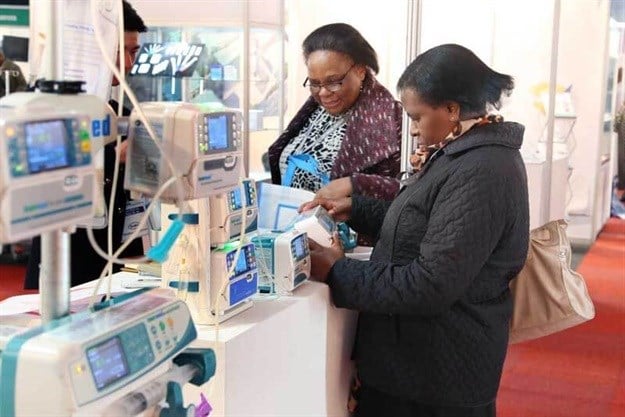
Top stories






More news


Marketing & Media
Ads are coming to AI. Does that really have to be such a bad thing?














We caught up with Jamie Hill, director at Informa Life Sciences Exhibitions, to get some insight into what a sustainable healthcare future on the continent looks like, as well as some of the key topics to be addressed at this year's event.
Africa Health gets bigger each year with more and more healthcare and trade professionals coming to attend from across Africa. This year, exhibition space has expanded to allow for more local and international companies to attend and showcase their latest technology and products. The topics that will be discussed across the 13 conferences (nine of which offer CPD accreditation) have been developed to address the latest trends and issues that are impacting healthcare in the region.
We will also see the launch of the Leaders in Healthcare conference which will see key personnel from across the sub-Saharan healthcare sector come together to discuss sustainable investment for African healthcare. Leaders in Healthcare will host a ministerial summit with ministers of health from across the SADC in attendance.
Africa Health will feature nine clinical conferences such as the Surgery Forum, Imaging & Diagnostics, and Nursing, as well as four non-clinical conferences including Leaders in Healthcare, Public Health, and Hospital Build. Under topical and relevant themes, each of these conferences will highlight challenges in healthcare and offer room for discussion on the possible solutions.
More than 500 companies will be showcasing their latest innovations across the three days of the exhibition. With a mix of both local and international companies exhibiting, visitors and delegates will get to explore products from more than 34 countries. Products on display cover multiple specialties across the medical spectrum, from high-tech imaging equipment to medical disposables.

Working closely with local healthcare associations, as well as key industry leaders, we develop conference programmes to address the most topical issues in healthcare right now. Accordingly, based on the specific topics to be discussed, we reach out to practitioners and healthcare professionals that have experience at the forefront of these issues to come speak during the congress and impart their knowledge to the region’s healthcare workforce.
There are several factors that come into play when considering a sustainable healthcare system, including the initiation of a healthcare facility, from financing to equipment procurement, to efficient processes carried out by healthcare practitioners. Several of these factors, and their issues and potential solutions, will be discussed across the conferences at Africa Health. If the solutions are actively applied, a sustainable healthcare future in Africa may see the proficient management of healthcare financing, seamless cohesion in public-private partnerships, longer lasting lifecycles of equipment, and the seamless adoption of improved processes by healthcare practitioners across specialties – all to result in improved patient outcomes.

Each of the 13 conferences at Africa Health address key challenges faced by healthcare in Africa. Some of the most prevalent issues that will be discussed include ‘maternal health and mortality’, which will be explored in the Obs-Gyne Case Reviews and Ethics conferences, and the dilemmas behind ‘healthcare infrastructure financing and cost management’, which will be a leading topic in the Hospital Build conference.
Different stakeholders in a healthcare system will have their own challenges that they feel impact their roles and contribute to inhibiting sustainable healthcare. However, across the conferences, a common theme is the issue of healthcare financing. Overall funding seems to be the biggest issue that needs to be addressed before achieving sustainable healthcare in Africa.
Through research and from discussions with the Africa Health speaker faculty, it could be said that numerous African countries are taking steps in the right direction towards sustainable healthcare in different ways. Namibia for example have their plans in place to implement universal health coverage and eliminate malaria by 2020 and Botswana have recently opened a new 450-bed teaching hospital through public-private partnership (PPP).
Here in South Africa, key discussions on healthcare cost regulation are a real positive sign to relieve the current strain on the public sector, as well as the National Infrastructure programme focusing on the building and development of primary healthcare centres.

These are extremely important and can play a pivotal part in achieving sustainable healthcare and delivery. It allows for the overall alignment of healthcare providers to government initiatives and priorities but backed by funding and expertise from the private side.
Click here for more information on the Africa Health Exhibition & Congress.
